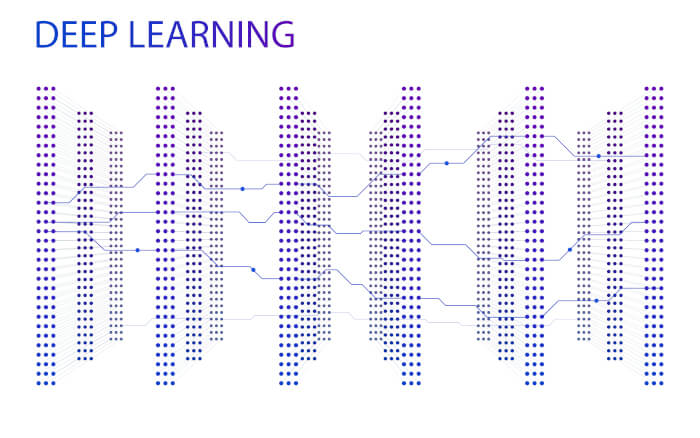Apache MXNet is a modern open-source deep learning framework used to train, and deploy deep neural networks. It allows users to mix symbolic and imperative programming to maximize efficiency and productivity.
The software is scalable, allowing for fast model training, and supports a flexible programming model and multiple languages (C++, Python, Julia, Matlab, JavaScript, Go, R, Scala, Perl, and Wolfram Language).
MXNet is also a collection of blueprints and guidelines for building deep learning systems, and interesting insights of deep learning systems.
Features include:
- Supports state of the art in deep learning models, including convolutional neural networks (CNNs) and long short-term memory networks (LSTMs).
- Designed to be distributed on dynamic cloud infrastructure, using distributed parameter server, and can achieve almost linear scale with multiple GPU/CPU.
- Supports both imperative and symbolic programming.
- Supports an efficient deployment of a trained model to low-end devices for inference, such as mobile device.
- Design notes providing useful insights that can re-used by other deep learning projects.
- Flexible configuration for arbitrary computation graph.
- Mix and match imperative and symbolic programming to maximize flexibility and efficiency.
- APIs:
- NDArray API – provides imperative tensor operations on CPU/GPU. An NDArray represents a multi-dimensional, fixed-size homogeneous array. NDArray supports advanced indexing (both slice and assign).
- Symbol API – provides neural network graphs and auto-differentiation.
- Module API – provides an intermediate and high-level interface for performing computation with a Symbol. It lets us train the network and predict results.
- and others.
- Lightweight, memory efficient and portable to smart devices.
- Cloud-friendly and directly compatible with S3, HDFS, and Azure.
- Speed up multi-GPU and distributed training by compressing communication of gradients.
- Supports the NVIDIA Collective Communication Library.
- Support for C++, Python, Julia, Matlab, JavaScript, Go, R, Scala, Perl, Wolfram Language.
Website: mxnet.apache.org
Support: FAQ, GitHub Code Repository
Developer: Apache Software Foundation
License: Apache License 2.0
Return to Deep Learning with Python
| Popular series | |
|---|---|
| The largest compilation of the best free and open source software in the universe. Each article is supplied with a legendary ratings chart helping you to make informed decisions. | |
| Hundreds of in-depth reviews offering our unbiased and expert opinion on software. We offer helpful and impartial information. | |
| The Big List of Active Linux Distros is a large compilation of actively developed Linux distributions. | |
| Replace proprietary software with open source alternatives: Google, Microsoft, Apple, Adobe, IBM, Autodesk, Oracle, Atlassian, Corel, Cisco, Intuit, and SAS. | |
| Awesome Free Linux Games Tools showcases a series of tools that making gaming on Linux a more pleasurable experience. This is a new series. | |
| Machine Learning explores practical applications of machine learning and deep learning from a Linux perspective. We've written reviews of more than 40 self-hosted apps. All are free and open source. | |
| New to Linux? Read our Linux for Starters series. We start right at the basics and teach you everything you need to know to get started with Linux. | |
| Alternatives to popular CLI tools showcases essential tools that are modern replacements for core Linux utilities. | |
| Essential Linux system tools focuses on small, indispensable utilities, useful for system administrators as well as regular users. | |
| Linux utilities to maximise your productivity. Small, indispensable tools, useful for anyone running a Linux machine. | |
| Surveys popular streaming services from a Linux perspective: Amazon Music Unlimited, Myuzi, Spotify, Deezer, Tidal. | |
| Saving Money with Linux looks at how you can reduce your energy bills running Linux. | |
| Home computers became commonplace in the 1980s. Emulate home computers including the Commodore 64, Amiga, Atari ST, ZX81, Amstrad CPC, and ZX Spectrum. | |
| Now and Then examines how promising open source software fared over the years. It can be a bumpy ride. | |
| Linux at Home looks at a range of home activities where Linux can play its part, making the most of our time at home, keeping active and engaged. | |
| Linux Candy reveals the lighter side of Linux. Have some fun and escape from the daily drudgery. | |
| Getting Started with Docker helps you master Docker, a set of platform as a service products that delivers software in packages called containers. | |
| Best Free Android Apps. We showcase free Android apps that are definitely worth downloading. There's a strict eligibility criteria for inclusion in this series. | |
| These best free books accelerate your learning of every programming language. Learn a new language today! | |
| These free tutorials offer the perfect tonic to our free programming books series. | |
| Linux Around The World showcases usergroups that are relevant to Linux enthusiasts. Great ways to meet up with fellow enthusiasts. | |
| Stars and Stripes is an occasional series looking at the impact of Linux in the USA. | |
